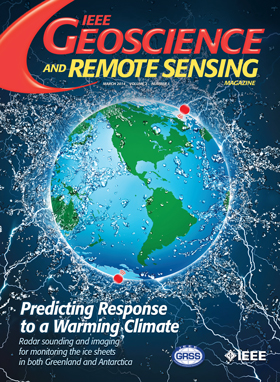地球观测与人工智能:理解新出现的伦理问题和机遇
IF 16.2
1区 地球科学
Q1 GEOCHEMISTRY & GEOPHYSICS
引用次数: 5
摘要
在使用人工智能(AI)的所有应用程序中,道德是一个核心且日益受到关注的问题。地球观测(EO)和遥感(RS)研究严重依赖大数据和人工智能或机器学习(ML)。虽然这种依赖并不新鲜,但随着图像分辨率的提高和EO/RS用例数量的增加,这些用例对治理、政策和人们的生活产生了直接影响,道德问题正在占据中心位置。在本文中,我们为从事人工智能EO (AI4EO)研究的科学家提供了一个实用的概述,概述了该领域出现的关键伦理问题,并提供了EO/RS内部的具体例子来解释这些问题,以及2)第一个路线图(流程图),科学家可以使用它来识别正在进行的研究中的伦理问题。因此,我们的目标是让科学家对这些问题更加敏感,并在从事AI4EO研究的科学家和从事伦理研究的科学家之间建立一个建设性和定期沟通的桥梁。文章还提供了四个AI4EO研究领域的详细例证,以解释科学家如何重新设计研究问题,以更有效地抓住伦理机会,解决现实世界中的问题,否则这些问题类似于伦理困境,看不到双赢的解决方案。文章最后向希望支持伦理意识AI4EO研究的机构提供建议,并为该领域的未来研究提供建议。本文章由计算机程序翻译,如有差异,请以英文原文为准。
Earth Observation and Artificial Intelligence: Understanding emerging ethical issues and opportunities
Ethics is a central and growing concern in all applications utilizing artificial intelligence (AI). Earth observation (EO) and remote sensing (RS) research relies heavily on both big data and AI or machine learning (ML). While this reliance is not new, with increasing image resolutions and the growing number of EO/RS use cases that have a direct impact on governance, policy, and the lives of people, ethical issues are taking center stage. In this article, we provide scientists engaged with AI for EO (AI4EO) research, 1) a practically useful overview of the key ethical issues emerging in this field, with concrete examples from within EO/RS to explain these issues, and 2) a first road map (flowchart) that scientists can use to identify ethical issues in their ongoing research. With this, we aim to sensitize scientists to these issues and create a bridge to facilitate constructive and regular communication among scientists engaged in AI4EO research, on the one hand, and ethics research, on the other hand. The article also provides detailed illustrations from four AI4EO research fields to explain how scientists can redesign research questions to more effectively grab ethical opportunities to address real-world problems that are otherwise akin to ethical dilemmas with no win-win solution in sight. The article concludes by providing recommendations to institutions that want to support ethically mindful AI4EO research and provides suggestions for future research in this field.
求助全文
通过发布文献求助,成功后即可免费获取论文全文。
去求助
来源期刊

IEEE Geoscience and Remote Sensing Magazine
Computer Science-General Computer Science
CiteScore
20.50
自引率
2.70%
发文量
58
期刊介绍:
The IEEE Geoscience and Remote Sensing Magazine (GRSM) serves as an informative platform, keeping readers abreast of activities within the IEEE GRS Society, its technical committees, and chapters. In addition to updating readers on society-related news, GRSM plays a crucial role in educating and informing its audience through various channels. These include:Technical Papers,International Remote Sensing Activities,Contributions on Education Activities,Industrial and University Profiles,Conference News,Book Reviews,Calendar of Important Events.
 求助内容:
求助内容: 应助结果提醒方式:
应助结果提醒方式:


